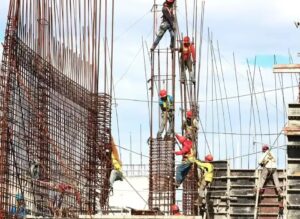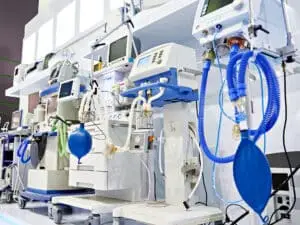Medical errors shatter your trust when you’re most vulnerable. You entered the hospital expecting care and healing, but instead left with new injuries, unexplained complications, or worse health than before. The questions keep you awake: Was this preventable? Who’s responsible? Can you hold the hospital accountable, or just the individual doctor?
We understand these questions feel urgent while you’re dealing with additional medical treatments, mounting bills, and the emotional toll of preventable harm. Louisiana law provides specific pathways for accountability, but determining whether the hospital itself bears responsibility requires understanding several key distinctions.
Understanding Hospital Liability vs. Individual Provider Liability
Louisiana medical malpractice law distinguishes between holding individual healthcare providers responsible and holding the hospital itself liable. This distinction matters because it affects who you can pursue for compensation, what resources are available for your recovery, and how your case proceeds through the legal system.
Hospitals can be held liable in two primary ways under Louisiana law. First, through vicarious liability, which means the hospital bears responsibility for its employees’ negligent acts. Second, through direct liability, when the hospital’s own policies, procedures, or institutional failures cause patient harm.
When Hospitals Bear Responsibility for Employee Actions
Vicarious Liability for Hospital Employees
Louisiana hospitals are responsible for negligent acts committed by their direct employees during the scope of their employment. This principle, called vicarious liability or “respondeat superior,” applies to:
Nurses and nursing staff who provide direct patient care. If a nurse administers the wrong medication, fails to monitor vital signs, or doesn’t follow physician orders, the hospital bears liability for resulting injuries.
Medical technicians and technologists conduct tests, operate equipment, or perform procedures. When a radiology tech improperly positions you for an X-ray, causing injury, or a lab tech mixes up blood samples, leading to misdiagnosis, the hospital is responsible.
Paramedics and emergency medical technicians are employed by the hospital. Errors during ambulance transport or emergency treatment create hospital liability.
Residents and interns in training programs. These doctors-in-training are hospital employees, making the facility liable for their negligent acts during patient care.
The key factor is the employment relationship. These healthcare workers receive W-2s from the hospital, work set schedules determined by the facility, and follow hospital policies and procedures.
Direct Hospital Negligence
Beyond employee actions, hospitals face liability for their own institutional failures. Louisiana courts recognize these forms of direct hospital negligence:
Inadequate staffing poses serious risks. When hospitals maintain dangerously low nurse-to-patient ratios to cut costs, patients suffer. Missed medications, delayed responses to emergencies, and inadequate monitoring all stem from understaffing.
Failure to maintain equipment creates preventable dangers. Hospitals must regularly inspect, maintain, and replace medical equipment. When a ventilator fails due to poor maintenance or an outdated defibrillator doesn’t work during a cardiac emergency, the hospital bears direct responsibility.
Inadequate policies and procedures lead to systematic errors. Hospitals must establish and enforce protocols for patient safety, infection control, and emergency response. Absence of proper hand-washing protocols leading to hospital-acquired infections represents institutional negligence.
Negligent credentialing occurs when hospitals grant privileges to unqualified providers. Louisiana hospitals must verify credentials, check disciplinary histories, and ensure competency before allowing practitioners to treat patients. Failure in this duty creates direct liability.
Understanding the Doctor-Hospital Relationship
The relationship between doctors and hospitals proves more complex than most patients realize. Many physicians practicing in Louisiana hospitals are independent contractors rather than employees. This distinction significantly affects liability.
Identifying Employee Physicians
Doctors are typically hospital employees when:
- The hospital sets their work schedules and vacation times
- They receive a regular salary rather than billing patients independently
- The hospital controls their patient fees and billing practices
- They cannot maintain private practices outside the hospital
- They participate in hospital administrative duties
- The hospital provides their malpractice insurance
Emergency room physicians, hospitalists, radiologists, pathologists, and anesthesiologists often work as hospital employees, though this varies by facility.
Recognizing Independent Contractors
Many doctors maintain independent contractor status even while practicing at hospitals. These physicians:
- Set their own schedules within broad hospital requirements
- Bill patients independently for their services
- Maintain private practices alongside hospital privileges
- Carry their own malpractice insurance
- Have admitting privileges at multiple hospitals
Surgeons, obstetricians, cardiologists, and other specialists frequently work as independent contractors. When these doctors commit malpractice, you typically must pursue them individually rather than the hospital.
Exceptions to the Independent Contractor Rule
Louisiana recognizes important exceptions where hospitals remain liable even for independent contractor physicians:
Apparent authority applies when hospitals lead patients to reasonably believe a doctor is their employee. If the hospital’s signage, uniforms, or patient communications suggest an employment relationship, the facility may still be liable, despite being in a contractor status.
Non-delegable duties exist for certain essential hospital functions. Emergency room services represent a core hospital function that facilities cannot escape through contractor arrangements. Many Louisiana courts hold hospitals liable for emergency room malpractice regardless of the physician’s employment status.
Negligent selection or retention creates liability when hospitals know or should know about a contractor’s incompetence but continue granting privileges. If a surgeon has multiple malpractice claims but the hospital continues to allow operations, the facility shares responsibility for any subsequent injuries.
Louisiana’s Medical Malpractice Act: Key Provisions
Louisiana’s Medical Malpractice Act establishes specific procedures and limitations for these claims. Understanding these requirements helps you protect your rights:
Medical Review Panel Requirement
Before filing a lawsuit, Louisiana generally requires submitting your claim to a medical review panel. This panel, consisting of three healthcare providers and one attorney, reviews evidence and issues an opinion about whether malpractice occurred. While their opinion isn’t binding, it carries weight at trial.
The panel process typically takes 12 to 18 months. During this time, the statute of limitations is suspended, protecting your right to file suit. However, specific exceptions exist for claims against state-run facilities, which may bypass the panel requirement.
Statute of Limitations
Louisiana law provides two years from the date of injury to file a medical malpractice claim, or one year from discovering the injury, whichever comes first. This deadline is absolute. Missing it eliminates your right to compensation, regardless of the severity of your injury.
For minors, the statute extends until their 19th birthday for general medical malpractice. However, different rules apply to birth injury cases, where claims must be filed by the child’s 10th birthday.
Damage Caps and Compensation
Louisiana limits medical malpractice damages for pain and suffering to $500,000 per patient, regardless of the number of defendants. This cap doesn’t apply to past and future medical expenses or lost wages, which remain fully recoverable based on actual losses.
The Louisiana Patient’s Compensation Fund provides additional coverage when damages exceed the insurance limits of a qualified healthcare provider. This fund ensures compensation availability even for catastrophic injuries.
Proving Your Medical Malpractice Case
Establishing hospital liability requires proving four essential elements:
Duty of care exists whenever you’re a hospital patient. The facility and its employees owe you professional medical care meeting accepted standards.
Breach of duty occurs when care falls below acceptable medical standards. Expert testimony typically establishes what a reasonably competent hospital or healthcare provider would have done differently.
Causation links the breach directly to your injury. You must show the substandard care caused your harm, not an underlying condition or unavoidable complication.
Damages must be documented through medical records, bills, wage statements, and testimony about pain and suffering. Specific, verifiable harm is essential.
Common Hospital Liability Scenarios
Understanding typical situations helps recognize potential claims:
Medication errors remain devastatingly common. According to the CDC, over 1.5 million people visit emergency departments annually for adverse drug events. When nurses administer wrong medications, incorrect dosages, or drugs you’re allergic to despite documented allergies, hospitals bear responsibility. These errors often result from understaffing, poor communication systems, or inadequate verification procedures.
Surgical mistakes involving retained instruments, wrong-site surgeries, or anesthesia errors create clear liability. While the surgeon may be an independent contractor, the hospital remains responsible for its employed surgical nurses, anesthesiologists, and systemic safety failures.
Emergency room negligence includes misdiagnosis, delayed treatment, and premature discharge. Louisiana hospitals cannot escape liability for emergency department errors by claiming physicians are contractors, as emergency services represent core hospital functions.
Hospital-acquired infections from inadequate sanitation, improper sterilization, or failure to follow infection control protocols represent institutional negligence. The Joint Commission reports that hospital-acquired infections remain a leading cause of preventable patient harm. MRSA, C. diff, and surgical site infections often trace back to systemic hospital failures.
Falls and injuries from wet floors, inadequate assistance, or malfunctioning equipment create premises liability alongside potential malpractice claims. Hospitals must maintain safe environments for patients.
Taking Action: Protecting Your Rights
Time-sensitive steps protect your potential claim:
Document everything while memories remain fresh. Write down what happened, who was involved, and when events occurred. Keep all medical records, bills, and correspondence.
Report incidents to hospital administration and request copies of incident reports. While hospitals may resist providing these, Louisiana law entitles you to your medical records.
Seek immediate medical attention for ongoing problems. Receiving proper treatment takes priority over legal concerns, and documenting subsequent treatment strengthens your case.
Avoid signing anything from hospital risk management or insurance companies without legal review. These documents often contain releases or admissions harmful to your claim.
Preserve evidence, including medications, medical devices, or anything else relevant to your injury. Take photographs of visible injuries, surgical sites, or dangerous conditions.
Moving Forward After Medical Harm
Medical malpractice disrupts every aspect of life. Physical recovery competes with financial pressure while you navigate complex legal requirements. You deserve comprehensive compensation for preventable medical injuries, whether caused by individual providers or institutional failures.
Understanding hospital liability helps you identify responsible parties and available resources for recovery. Louisiana law provides pathways for accountability, but these cases require thorough investigation, expert testimony, and skilled legal navigation.
We know you’re already dealing with enough. Medical injuries shouldn’t require you to become a legal expert, too. Let’s discuss your specific situation and explain exactly how Louisiana law applies to your medical injury. Together, we can determine whether the hospital, individual providers, or both bear responsibility for your harm.
Contact us when you’re ready to understand your options. We’ll review your medical records, investigate the circumstances, and provide clear guidance about pursuing the compensation you need for healing and recovery.





